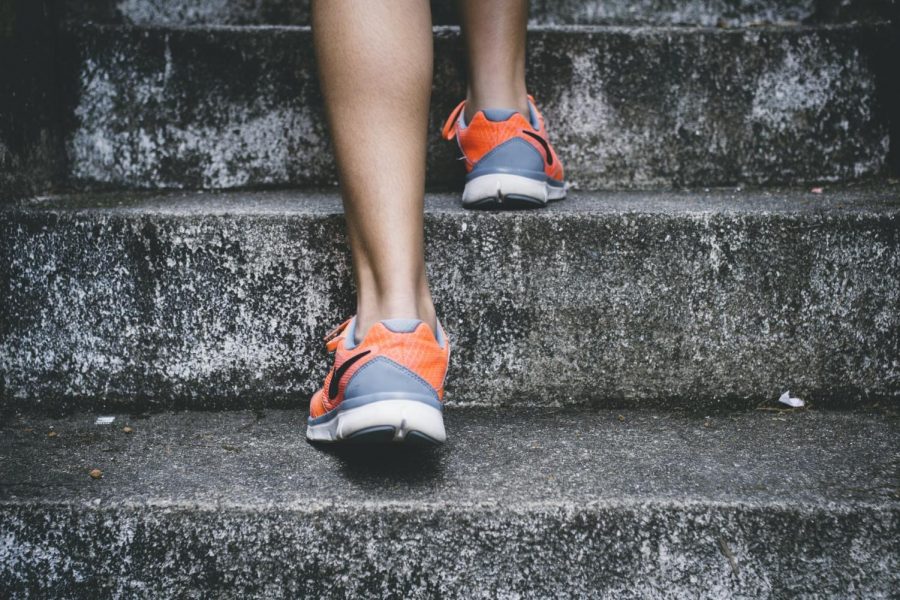The stress of final exams creeping in, squeezing in extra credit assignments and closing out extracurriculars can all lead to an overwhelming build up of stress and anxiety for college students as the semester dwindles down.
It is completely normal to feel stressed out during this time of year, especially with the added stress of the COVID-19 pandemic. But luckily, there are ways to manage that stress. While certain coping mechanisms such as breathing exercises and talking it out with loved ones do help, research shows that physical exercise is the most effective way of dealing with an overload of stress.
Under stress, the body reacts in many ways. Muscles tense causing pain, headaches can occur, there can be tightness in the chest and it’s not so uncommon to experience insomnia, heartburn and stomach aches. The mental strain of stress often translates to physical pain, and vise versa. Exercise is the best way to relieve this pain as it not only loosens up the muscles, but allows for the mind to relax. The mind and body are heavily intertwined — when one starts to feel better you will see the other starts to follow.
According to researchers, aerobic exercise may be the best way to relieve the physical and mental effects of stress. When engaging in aerobic exercise your heart rate rises, leading to a release of endorphins in the brain. In the wise words of “Legally Blonde”’s Elle Woods, “exercise gives you endorphins. Endorphins make you happy. Happy people just don’t shoot their husbands, they just don’t.”
Endorphins create an amazing chain reaction of benefits in the body. When endorphins are released, they react in your body as a “natural painkiller,” decreasing overall levels of tension, elevating and stabilizing your mood, improving sleep and self-esteem, as well as sharpening your thinking, all of which, in turn, reduce stress.
Don’t be alarmed, aerobic exercise does not just mean running. There are countless other exercises including walking, swimming, biking, dancing and boxing. Activities such as yoga and stretching have also proven to be effective when managing stress.
While the thought of starting a rigorous exercise plan may add to current stress felt by many, it does not take much to reap the benefits of physical activity. When studying gets overwhelming and you feel your stress level rise, stop and give your mind a break. Take a short walk, either around campus or around your neighborhood, as they say anywhere from 5-30 minutes of exercise is enough to reduce stress and anxiety.
It does not have to be every day either. A recent study in the United Kingdom demonstrated that those who cram their workouts into the weekend with little to no exercise during the week receive almost the same health benefits as people who exercise regularly.
Exercise is hard — if you feel your body needs a break, take it. It should not be something that adds to the stress of finals or something you feel obligated to do. If you find an exercise regimen that works and makes you feel good, stick to it. It may feel daunting to get going, but the physical and mental benefits of exercise can positively impact your life.










